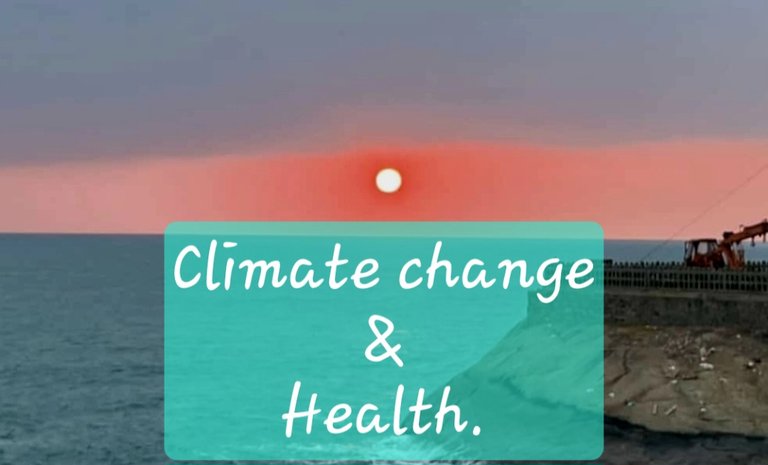A whisper in the wind, a fading melody.
We are in middle of April, and we are yet to experince the extreme summer. Usually, by this time of the year, we already start experiencing the heat, but for a change we are having thunderstorm, indecent rainfall and storm all over the place. Even we had hailstorm few days ago, bringing down the temperature. Likewise last year, we had unusual monsoon outside the usual month. Bringing a delayed cultivation on our agriculture. There are lot of changes happening in our climate and we are unable to notice the changes.

(own edited image)
While climate change is undeniably happening, several factors can make it difficult to track and predict specific changes at a localized level. While climate change is well-documented and understood, the complexity of the Earth's climate system, uncertainty in future emissions, and the need for more precise regional/local models make it challenging to track and predict the exact impacts of climate change at every location.
Such sudden changes bring about a lot of effect on our health. Even though we are unable to interpret, but silently such changes is creating a lot of health risk. Climate change significantly impacts human health through various pathways, including extreme weather events, changes in disease transmission, air pollution, and disruptions to food and water security. These changes can lead to increased respiratory and cardiovascular diseases, infectious illnesses, heat-related deaths, and mental health challenges
Climate change intensifies extreme weather events like heatwaves, storms, floods, and droughts, leading to injuries, deaths, and disruptions to healthcare systems. Higher temperatures increase the risk of heatstroke, dehydration, and cardiovascular complications. Extreme weather events can contaminate water sources, increasing the risk of waterborne diseases. Disruptions to food production can also lead to malnutrition and related illnesses. Changes in temperature and precipitation patterns can alter the distribution and spread of vector-borne diseases like malaria, dengue fever, and Zika virus. Climate change can disrupt agricultural production, leading to food shortages and malnutrition. It can also compromise water resources, impacting sanitation and hygiene.
To conclude, climate change is a major threat to global health, impacting human health in various ways and exacerbating existing health inequities. Addressing climate change is crucial for protecting human health and building more resilient and equitable healthcare systems.
In good faith - Peace!!

Posted Using INLEO
This post has been manually curated by @bhattg from Indiaunited community. Join us on our Discord Server.
Do you know that you can earn a passive income by delegating to @indiaunited. We share more than 100 % of the curation rewards with the delegators in the form of IUC tokens. HP delegators and IUC token holders also get upto 20% additional vote weight.
Here are some handy links for delegations: 100HP, 250HP, 500HP, 1000HP.
100% of the rewards from this comment goes to the curator for their manual curation efforts. Please encourage the curator @bhattg by upvoting this comment and support the community by voting the posts made by @indiaunited..
This post received an extra 20.00% vote for delegating HP / holding IUC tokens.
The recent focus in our modern world is fighting climate change and finding ways to minimize that threat, I see a lot of funding opportunities related to sponsoring climate change in finding solutions. It is good to have such opportunities, which I am also trying to explore.